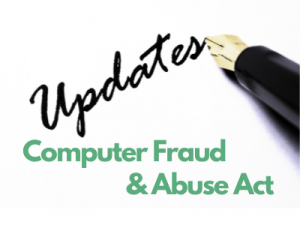Is it fraud if you make a truthful statement without disclosing that your motivation for making it is to help someone else profit ? That, in essence, is the central question in the appeal in United States v. Anthony Allen et. al., No. 16-939 (CON) (2d Cir.), currently scheduled for oral arguments in front of the Second Circuit Court of Appeals on Thursday, January 26, 2017 at 10 am ET. Tor Ekeland P.C. represented Anthony Conti, one of the defendants, at trial, and is doing so on appeal. Michael S. Schachter and Casey E. Donnelly from Wilkie Farr & Gallagher LLP represent co-defendant Anthony Allen. United States v. Allen was the first criminal trial in the United States of bankers for their alleged manipulation of the LIBOR interest rate. LIBOR is a benchmark interest rate used as a reference point for numerous financial transactions from interest rate swaps to mortgages. LIBOR stands for the “London Interbank Offering Rate” and is meant to represent the perceived average interest rate that 15 banks could use to borrow money from each other. Everyday at 11am each of the banks in question would submit the interest rate at which they believed they could borrow money in the London Interbank market. Although this sounds straightforward, the setting of LIBOR was anything but. To begin with, the Banks were asked to submit LIBOR rates for maturities (Overnight, 1 month, 3 months, 6 months etc.) they didn’t borrow or lend money for. This forced the LIBOR submitter, in this case our client Anthony Conti of RaboBank, to make their best guess as to what the LIBOR rate should be based on a variety of market information. None of this market information was conclusive about what the rate should be beyond indicating, most of the time, that it was within a certain range. Different banks could borrow at different rates based on their credit rating, perceived liquidity, and a host of other factors. When the credit markets froze up during the financial meltdown of 2008, however, there was no market information to rely on and LIBOR submitters were forced to guess. Despite all this, Mr. Conti and Mr. Allen were indicted and convicted for wire fraud on the basis of their roles in the LIBOR submission process at RaboBank. The government prevailed at trial under a theory that even though the LIBOR submission may have been truthful, the fact that they were motivated by undisclosed profit motives made the submissions fraudulent. Often, traders at RaboBank and other submitting banks would ask LIBOR submitters to submit a high or low rate because it would benefit a trading position the trader held. At trial the government never argued that LIBOR could be definitively determined to be a single number. Rather they argued that even if a truthful LIBOR number could be within a range, the fact that the LIBOR submissions were allegedly influenced by requests from traders who would benefit from a higher or lower LIBOR rate constituted wire fraud. The truth of the submitted rate is immaterial, the government argues. Thus, under the government’s theory, a true statement may constitute fraud solely on the basis of the motivation by which it was made. Here are the appellate briefs: defendants-appellants-opening-brief-2016-07-06-us-v-conti government-appellate-brief-2016-10-05-us-v-conti-240 reply-brief-2016-11-3-u-s-v-allen new-york-council-of-defense-lawyers Press Inquiries: info@torekeland.com]]]]> ]]>

Webinar Invite: Michael Hassard joins a virtual panel on Intellectual Property and Smart Contracts – Oct 20, 2022 3pm ET
Firm Associate Michael Hassard will be part of a virtual panel discussion on on Intellectual Property (IP), Smart Contracts, Branding, and Usage Rights. October 20, 2022 at 3pm Eastern. Sign up to attent.



